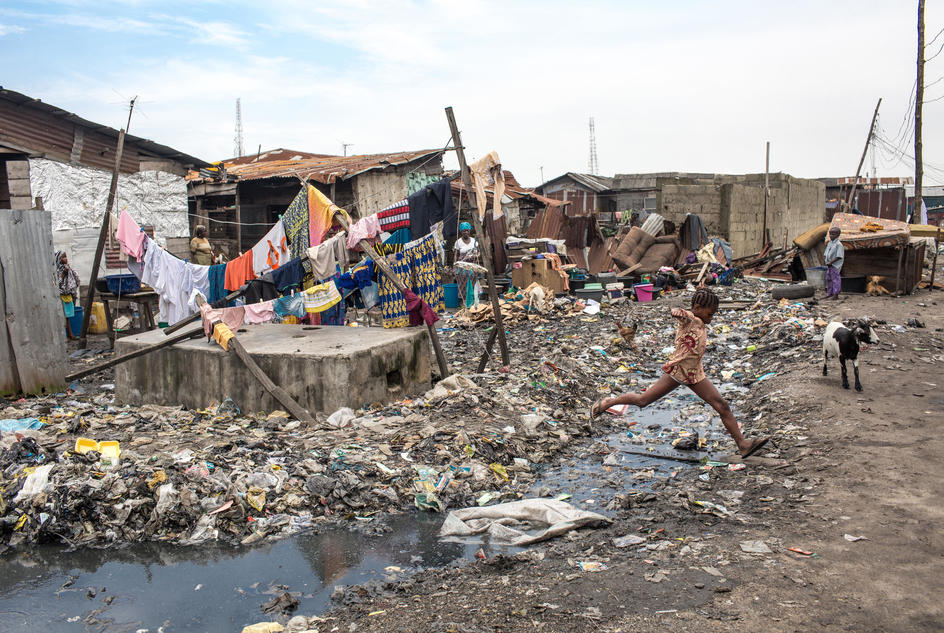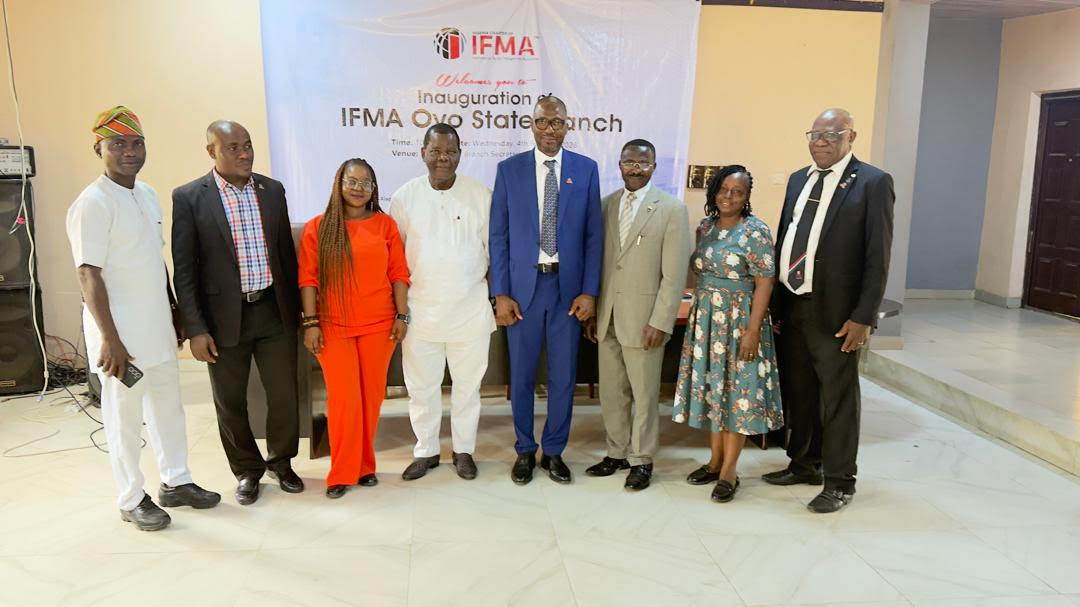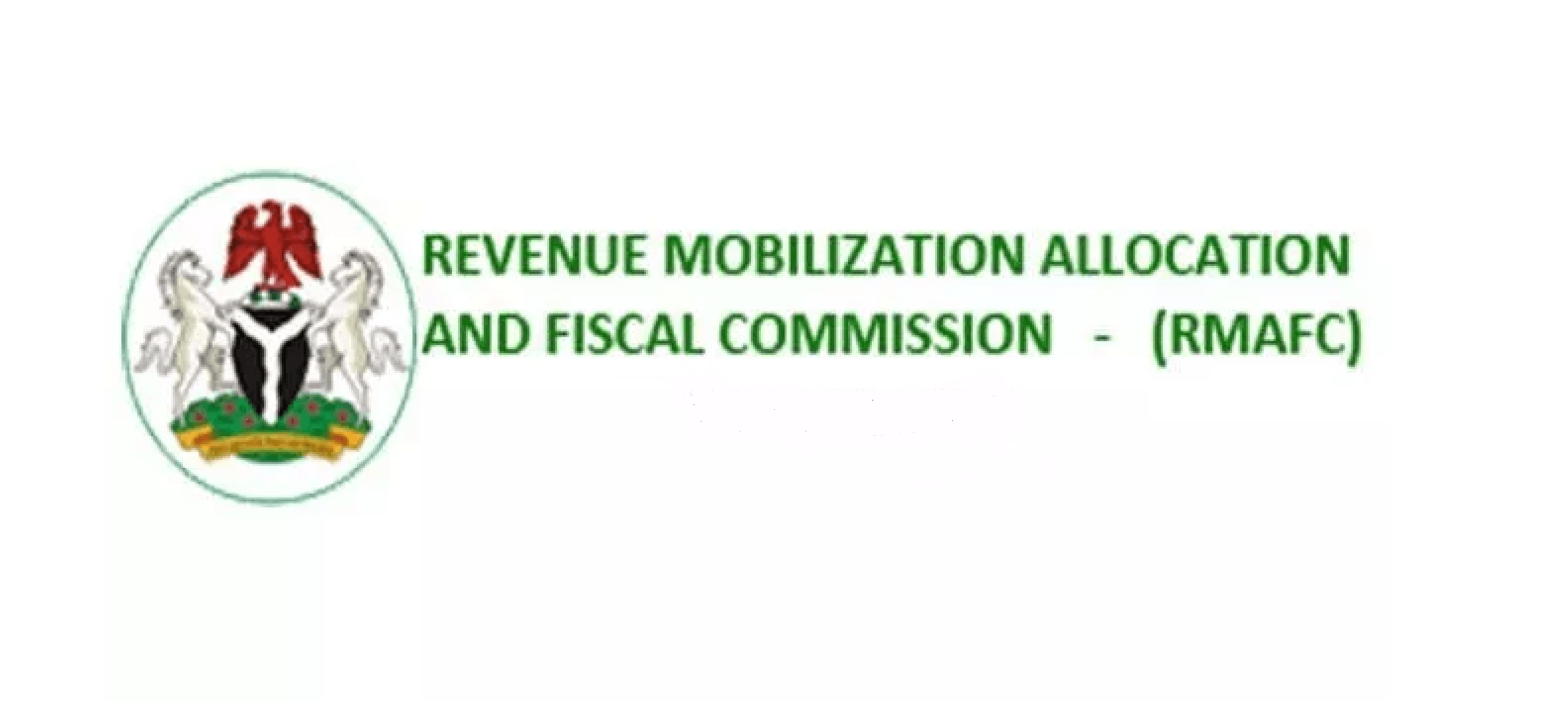General
UNICEF Urges Nigeria to Make Urgent Investments in Sanitation

**As 44% of Nigerians Have Access to Basic Sanitation Services
By Modupe Gbadeyanka
A report released on Tuesday by the federal government has revealed that 44 per cent of the population in Nigeria now have access to basic sanitation services in 2019.
The survey, conducted in conjunction with the National Bureau of Statistics (NBS), UNICEF and the African Development Bank (AfDB), showed that this was an improvement from the 42 per cent recorded in 2018.
However, UNICEF has advised Nigeria to make urgent investments in basic sanitation and this should include a partnership with the private sector, communities and young people.
UNICEF Nigeria Country Representative, Peter Hawkins, said that “the results from this survey underline the urgent need to increase investments in sustaining and expanding access to hygiene, water and sanitation if Nigeria is to contain the spread of the coronavirus and other deadly diseases,” noting that the results also provide policymakers with a critical roadmap on exactly where to put the nation’s resources.
At an event held in Abuja, the Minister of Water Resources, Mr Suleiman Adamu, unveiled the 2019 WASH NORM II Report, which was borne out of the need for comprehensive data on water supply, sanitation and hygiene for effective monitoring the progress the country is making towards achieving Sustainable Development Goals (SDGs) targets 6.1 and 6.2.
It was discovered that access to basic water supply services has steadily increased from 68 per cent in 2018 to 70 per cent in 2019, while about a third of all schools (33 per cent) have basic water supply services, with only 26 per cent of schools provide access to basic sanitation services, amongst others.
In the wake of COVID-19 pandemic, the Minister said that gaps in handwashing should immediately be seen as a major public health issue. To this end, stronger high-level commitments with policy initiatives based on evidence-informed interventions to close the gaps in access to WASH services are needed.
Some key policy initiatives have already been enacted at the national level, including the Partnership for Expanded Water, Sanitation and Hygiene (PEWASH) programme, Open Defecation Free (ODF) roadmap with Clean Nigeria, Use Toilet Campaign and National Action Plan for Revitalization of the WASH sector.
He, therefore, called on state and local governments to beef up efforts in domesticating national programmes with strong commitments backed by adequate budgets for rapid turnaround in the sector.
The Minister, thereafter, said Nigeria is clearly in the right direction due to the opportunity presented by the NORM survey in tracking WASH critical indicators.
In order to ensure real-time and seamless flow of WASH data, the innovative NORM dashboard and NORM Intervention Profiling Tool are now available at www.washims.gov.ng with associated factsheet that clearly captures the WASH situation at subnational levels.
He expressed his optimism that this is a legacy that he hoped would be bequeathed to the new generation of WASH Implementers at all levels and tiers of government.
General
IFMA Nigeria Gets Branch in Oyo, Picks Adejumo Olusola Babatunde as Coordinator

By Modupe Gbadeyanka
A new branch of the International Facility Management Association (IFMA) Nigeria Chapter has been established in Oyo State, with Mr Adejumo Olusola Babatunde chosen as Coordinator.
The organisation set up an arm in the South-West state in a bid to expand its footprint in the country. Mr Babatunde will be assisted by other executive committee members, including Mr Ajiboye Olusola Akeem as Secretary, and Mrs Adeniran Olaide as Treasurer.
At the inauguration of the branch at the Nigerian Society of Engineers (NSE) Secretariat in the Akobo area of Ibadan, the Oyo State capital, the president of IFMA Nigeria, Mr Sheriff Daramola, expressed delight at the successful inauguration of the branch and commended members for their commitment to the growth of facility management in Nigeria.
He highlighted IFMA’s global heritage, noting that the association is supporting over 25,000 members in more than 140 countries worldwide. Mr Daramola emphasised IFMA’s strong global network, the world’s largest and most widely recognised association for facility management professionals, headquartered in the United States and its growing influence in Africa, the Middle East and Europe.
“IFMA members have taken positions of authority across federal, state, and private institutions; IFMA Nigeria is positioned to ensure our professionals are the first choice for global investors entering the Nigerian market,” he stated.
The Legal Adviser of IFMA, Nigeria, Mr Sola Fatoki, who shared this sentiment, said, “Since 1997, when IFMA Nigeria was established, the association has equipped facility management professionals with integrated knowledge spanning human behaviour, infrastructure, and the built environment.”
He encouraged engineers, architects, surveyors, ITC, Technology innovators, data analysts and allied professionals to see IFMA as their professional home and outlined the functions and responsibilities of branch executive committees.
In his remarks, Mr Babatunde expressed gratitude to the national council for the opportunity to serve and pledged to ensure the success of the branch, focusing on unity and the professional advancement of stakeholders in the region.
General
We Didn’t Recommend Ceding Disputed Oil Wells to States—RMAFC

By Adedapo Adesanya
The Revenue Mobilisation Allocation and Fiscal Commission (RMAFC) has denied reports that some disputed crude oil and gas wells have been recommended for ceding to specific oil-producing states.
In a statement issued on Sunday, the chairman of the commission, Mr Mohammed Shehu, said the attention of RMAFC had been drawn to a “purported report allegedly issued by the Inter-Agency Committee on the Verification of Coordinates of Disputed Crude Oil and Gas Wells between States,” which was circulating in sections of the national media (excluding Business Post).
The agency described the report as “misleading, premature, and does not represent the position or conclusions of the Commission.”
“At this stage, there is no finalised recommendation or decision regarding the ceding or reallocation of any oil wells, as due institutional processes are still ongoing,” the statement read.
The organisation explained that it operates a clearly defined and transparent procedure in handling assignments of national significance, stressing that the process on the disputed oil wells had not been concluded.
It disclosed that it only received a draft report from the Federal Government’s Inter-Agency Committee on Nigeria’s Oil-Producing States on Friday, February 13, 2026, which reportedly projected Cross River State as an oil-producing state.
The report, covering the nationwide 2017–2025 verification of crude oil and gas coordinates, was presented to the Chairman of RMAFC by 10 of the 14 members of the committee.
The exercise, which ran from August 2025 to February 2026, involved extensive field verification, technical reconciliation of state submissions, and a final plenary plotting of coordinates at RMAFC headquarters between January 24 and 31, 2026.
“Consistent with established protocol, the draft document has been transmitted to relevant technical and statutory stakeholders, namely the Nigerian Upstream Petroleum Regulatory Commission, the National Boundary Commission, and the Office of the Surveyor General of the Federation, for detailed review, observations, and technical input,” the commission stated.
According to the statement, after the observations and recommendations of the agencies are received, the matter will be subjected to further scrutiny by the commission’s internal tripartite committees, comprising the Committee on Crude Oil, Gas and Investment and the Legal Matters Committee.
“These committees will undertake comprehensive technical and legal reviews before presenting their findings to the Plenary Session of RMAFC for deliberation and final recommendations,” it added.
The commission further explained that upon completion of the institutional processes, its final report would be formally transmitted to the President and the Attorney-General of the Federation for necessary consideration and further action in line with applicable laws and constitutional provisions.
General
Social Media Platform X Suffers Outages Globally

By Adedapo Adesanya
Social media platform, X, formerly known as Twitter, suffered an outage globally on Monday as millions of users could not use the service.
The widespread outages have been reported by thousands of users across several countries, including Nigeria, the United States, the United Kingdom, Turkey, and India, among others.
According to data from Downdetector, a website that tracks service disruptions based on user reports, complaints about access to X started to pick up around 1:00 p.m. local time in Nigeria.
The cause of the outage was not immediately clear, and X has not put out any comment, but users told Business Post that the platform is not loading or cannot be reached, and the pattern of complaints suggests the issue is not limited to a single region.
Its developer platform status page stated “all systems are operational” all morning despite the reports.
The outage is the latest to hit internet services. X suffered a similar outage in March 2025, while a Cloudflare service outage caused access problems and downtime for various websites, including X, last November.
Microsoft’s Azure had also faced an issue last year, while disruption at Amazon AWS caused global turmoil among thousands of websites and some of the most popular apps, such as Snapchat and Reddit in October
-

 Feature/OPED6 years ago
Feature/OPED6 years agoDavos was Different this year
-
Travel/Tourism10 years ago
Lagos Seals Western Lodge Hotel In Ikorodu
-

 Showbiz3 years ago
Showbiz3 years agoEstranged Lover Releases Videos of Empress Njamah Bathing
-

 Banking8 years ago
Banking8 years agoSort Codes of GTBank Branches in Nigeria
-

 Economy3 years ago
Economy3 years agoSubsidy Removal: CNG at N130 Per Litre Cheaper Than Petrol—IPMAN
-

 Banking3 years ago
Banking3 years agoSort Codes of UBA Branches in Nigeria
-

 Banking3 years ago
Banking3 years agoFirst Bank Announces Planned Downtime
-

 Sports3 years ago
Sports3 years agoHighest Paid Nigerian Footballer – How Much Do Nigerian Footballers Earn












